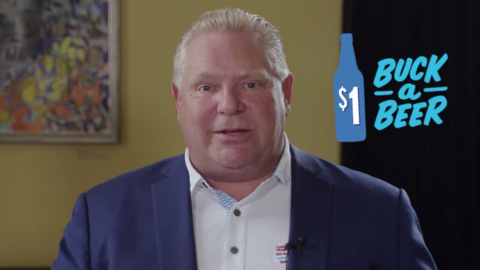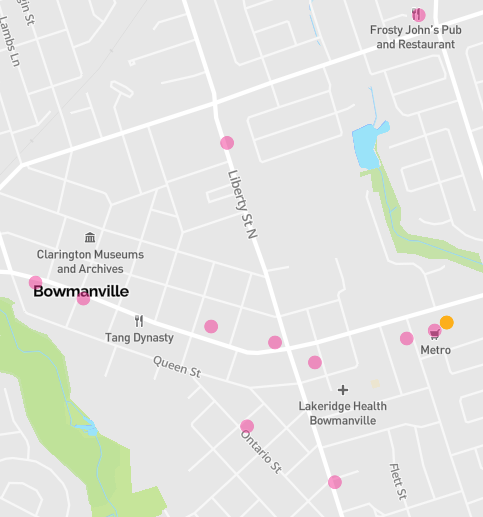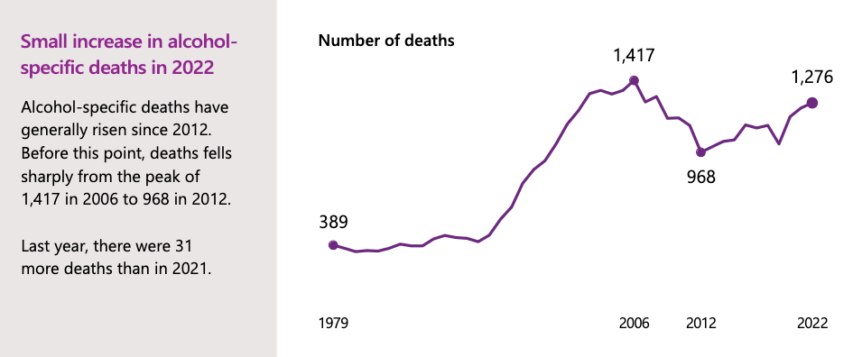When my editor told me that I could write about anything I wanted in my first column so long as it was Chardonnay, I thought briefly about killing her. In the years since Chardonnay has become a virtual brand name I’ve grown sick to death of hearing my waiter say, “We have a nice Chardonnay”. The “house” chard in most restaurants usually tastes like some laboratory synthesis of lemon and sugar. If on the other hand, you order off the top of the list, you may get something that tastes like five pounds of melted butter churned in fresh-cut oak.
Jay McInerney, Bacchus & Me: Adventures in the Wine Cellar, 2002.
March 2, 2025
QotD: Chardonnay
February 9, 2025
QotD: Rosé Wine
Anyone who starts analyzing the taste of a rosé in public should be thrown into the pool immediately. Since I am safe in a locked office at this moment, though, let me propose a few guidelines. A good rosé should be drier than Kool-Aid and sweeter than Amstel Light. I should be enlivened by a thin wire of acidity, to zap the taste buds, and it should have a middle core of fruit that is just pronounced enough to suggest the grape varietal (or varietals) from which it was made. Pinot Noir, being delicate to begin with, tends to make delicate rosés. Cabernet, with its astringency, does not. Some pleasingly hearty pink wines are made from the red grapes indigenous to the Rhône and southern France, such as Grenache, Mourvèdre, and Cinsault. Regardless of the varietal, rosé is best drunk within a couple of years of vintage.
Jay McInerney, Bacchus & Me: Adventures in the Wine Cellar, 2002.
January 18, 2025
Incentives matter even to “objective” scientists
A 2019 Canadian “study” ideally illustrates that scientists are just as human as anyone else where they are incentivized to provide “desired” outcomes:
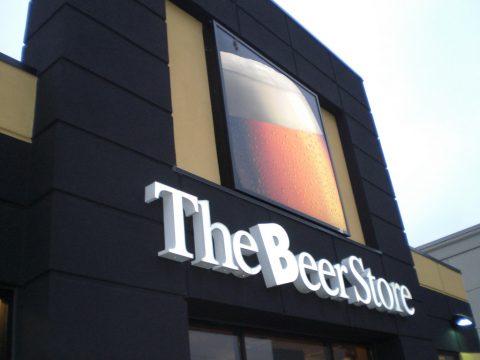
“The Beer Store” by Like_the_Grand_Canyon is licensed under CC BY-NC 2.0
Earlier this year, a major Canadian study on alcohol policy provided an excellent illustration of this. As news headlines across the country reported, 16 scientists and researchers at various universities and institutions had, through their Canadian Alcohol Policy Evaluation, shown that provincial governments are “failing to address alcohol problems”.
The scientists evaluated provincial government policies and assigned a grade in the “D” range to seven of Canada’s 13 provinces or territories, while five received an “F”. The policy evaluation, however, was a curious one. Strangely, the policy evaluation did not evaluate whether government policies were beneficial to those who want to buy or sell alcohol.
Instead, provincial governments were evaluated more favorably if they devoted greater efforts toward afflicting buyers and sellers of alcohol through punitive taxes, price controls, heavy restrictions on the sale and marketing of alcoholic beverages, higher minimum legal drinking ages, and so on.
Even in the most restrictive markets, the researchers found that alcohol was too cheap, or that its purchase was too convenient, or that governments did not do enough to discourage or restrict its sale and consumption.
Predictably, and perhaps exemplifying Berlinski’s point on scientists grasping for government funds, the report authored by 16 scientists whose livelihoods involve raising public alarm about alcohol consumption concluded that there ought to be more government funding for public education on the dangers of alcohol consumption.
The report also advocated more government funding for bureaucracies to discourage drinking, more government funding for a lead organization to implement restrictive alcohol policies, more government funding for independent monitoring of such implementation, and more government funding to track and report the harm caused by alcohol consumption.
Like the CEO of a domestic automobile company insisting that tariffs against car imports — which would cause a massive wealth redistribution from consumers’ wallets into his own and those of the company’s shareholders — are in the national interest, the anti-drinking scientists insisted in the name of public health and wellness upon income redistribution from taxpayers and consumers to their own industry.
November 12, 2024
QotD: Roger Scruton, terroiriste
 >Good wine is a “somewhere”, not an “anywhere”. It is stamped with a place and a year. Rooted, literally. The fancy French word for this is terroir, referring to the way in which environment — soil, geology, even the history of a place — is all responsible for a wine’s character. Terroir is a sense of place in a glass. Roger Scruton often referred to himself as a “terroiriste“. And this could describe his political philosophy as much as his philosophy of wine. From 2001 to 2009, Scruton wrote a wine column in the New Statesman, enabling him to smuggle into that otherwise exclusively Left-wing journal, all sorts of reactionary political ideas: about God, about fox-hunting, about beauty, about his love of the countryside.
>Good wine is a “somewhere”, not an “anywhere”. It is stamped with a place and a year. Rooted, literally. The fancy French word for this is terroir, referring to the way in which environment — soil, geology, even the history of a place — is all responsible for a wine’s character. Terroir is a sense of place in a glass. Roger Scruton often referred to himself as a “terroiriste“. And this could describe his political philosophy as much as his philosophy of wine. From 2001 to 2009, Scruton wrote a wine column in the New Statesman, enabling him to smuggle into that otherwise exclusively Left-wing journal, all sorts of reactionary political ideas: about God, about fox-hunting, about beauty, about his love of the countryside.
Wine, for Scruton, was never just about the taste, never a merely aesthetic sensation. Indeed, he was extremely sniffy about all those “blind tastings” — the ones where we delight when an expert fails to spot the difference between plonk and Premiere Cru. They miss the point, says Scruton. Blind tasting, he explained, is like blind kissing — not a good way to distinguish, for example, between someone who is sexy and someone who is not. Indeed, if the experiment on Love Island is anything to go by, it’s not even a good way to distinguish who your own girlfriend is.
That’s because sexual chemistry, like wine, is a great deal more than some momentary sensation on the lips. It’s a great deal more than a message sent by taste receptors to the brain. It is all about the terroir. And this is not just a comment about wine but about aesthetic experience in general. When we encounter a work of art, we bring a whole hinterland of knowledge that makes sense of that specific experience and gives it its character as art. Music is more than a vibration of the air and its reception by the ear and the brain. So too with wine and taste.
Giles Fraser, “Raise your glass to Roger Scruton, the terroiriste“, UnHerd, 2020-01-15.
October 18, 2024
QotD: Californian wine
Of course, there is another reason why Californians so eagerly turned to science and machinery when they finally decided to make serious wine: American wineries were in horrific condition. Andrew Barr, in his social history Drink, tells us that even in the late 1930s there were rats swimming happily in the vats of Sauvignon Blanc at Beaulieu and vinegar flies in the other wines. “The wine is so excellent,” the resident wine maker cooed, “that all the flies go to it. It doesn’t do any damage.” Open fermentation tanks let off clouds of carbon dioxide which got birds flying overhead drunk; stunned, they would fall into the vats and stay there.
Lawrence Osborne, The Accidental Connoisseur: An Irreverent Journey Through the Wine World, 2004.
October 8, 2024
Making the Black Mead of Medieval France – Bochet
Tasting History with Max Miller
Published Jun 25, 2024Black mead, or bochet, made with spices and wood chips
City/Region: Paris
Time Period: 1393Mead was very popular from Russia to England, but started to lose favor in part due to the rise of cheaper brews like vodka and hopped ales. Mead was often still drunk for its medicinal properties, especially when it was infused with herbs and spices.
This mead has some of those wonderfully warming spices, and I added wood chips from the local brewing store to mimic the wood barrels that it would have been fermented in. The burnt caramel scent softens and mellows out during fermentation, and the resulting mead is not sweet at all and is more complex than many meads I’ve had.
To make six sextier of bochet, take six pints of very sweet honey, and put it in a cauldron on the fire and boil it, and stir for so long that it starts to grow, and you see that it also boils with bubbles like small blisters which will burst, releasing a little bit of dark smoke. Then add seven sextier of water and boil so much that it reduces to six sextiers, and keep stirring. And then put it in a vat to cool until it is lukewarm; then strain it through a cloth, and put it in a barrel and add a pint of yeast from ale, because that is what makes it piquant, (though if you use bread yeast, it makes as good a flavor, but the color will be duller), and cover well and warmly so it ferments.
If you want to make it very good, add an ounce of ginger, long pepper, grains of paradise and cloves in equal amounts, except for the cloves of which there should be the least, and put them in a cloth bag and toss it in. And when it has been two or three days and the bochet smells of spices and is strong enough, take out the bag and wring it out and put it in the next barrel that you make. And so this powder will serve you well up to three or four times.
— Le Ménagier de Paris, 1393.
September 8, 2024
The last dispatch from Toronto before the catastrophe began
Toronto, in fact all of Ontario, may no longer be there when you get up tomorrow morning. As Chris Selley explained in his brave, final communiqué from the doomed province:
Dear non-Toronto friends,
This city is in crisis. This may be my last communiqué before the telex goes down for good, and I feel honour-bound to tell the world of my city’s plight. If the worst should occur, which it almost certainly will, please tell our story.
The unthinkable has occurred: Doug Ford’s madmen and women at Queen’s Park have licensed hundreds upon hundreds of new locations — called “convenience stores”, in local parlance — to sell beer, wine, cider and pre-mixed cocktails.
They did this instead of fixing health care, if you can believe that. And, outrage upon outrage, the government even made a map of such locations — as if delivering fallen Ontarians one by one to Mr. Booze himself.
Why, within just a few hundred metres of where I write, through my tears, I can discern on the map more than five such new locations. There’s Mei Convenience, Mimi Variety, Lucy Grocery and Meat, Queen & Jarvis Convenience … the list goes on, and on, my God. Church attendance is reportedly soaring as Torontonians steel themselves for the forthcoming.
Ford’s government did this entirely to solicit corporate donations to his party (some say that’s actually illegal, but whatever) from his buddies at convenience-store empires 7-Eleven and Couche-Tard … and presumably from Mimi and Lucy, whoever they are. Very rich women, clearly.
Instead of fixing health care!
Until recently, some semblance of sanity prevailed: The nearest government-run liquor store to where I sit now is a 15-minute walk away; the nearest Beer Store, the privately owned former quasi-monopoly where you’re still supposed to return your bottles and cans, is nearer to 20 minutes.
And now, suddenly, a bottle or can is shockingly near to hand. And this will lead to more alcohol-related harms. Of this there is no doubt, as one expert recently told the Toronto Methodist Star: “Harm will increase in Ontario. That is straightforward.”
It is true that many jurisdictions around the world report similar or lower levels of alcohol consumption and related harms than Ontario despite having much greater access to retail alcohol — Italy, Greece, the United States — but that is not germane to this discussion. Ontarians are not like other people. Ontario is not like other places. We are worse. Or maybe better. Or some combination of the two.
It’s true! Even saintly Bowmanville has been sullied with the demon liquor thanks to Premier Ford’s diabolical plan:
August 12, 2024
“Premier Doug Ford’s plans for the demon liquor will lead us all to untold poverty and perdition”
In the National Post, Chris Selley points and laughs at the classist viewing-with-alarm and frenzied pearl-clutching over the impending rule change that will allow wine and beer to be sold (and even served) in convenience stores like the 7-Eleven chain:
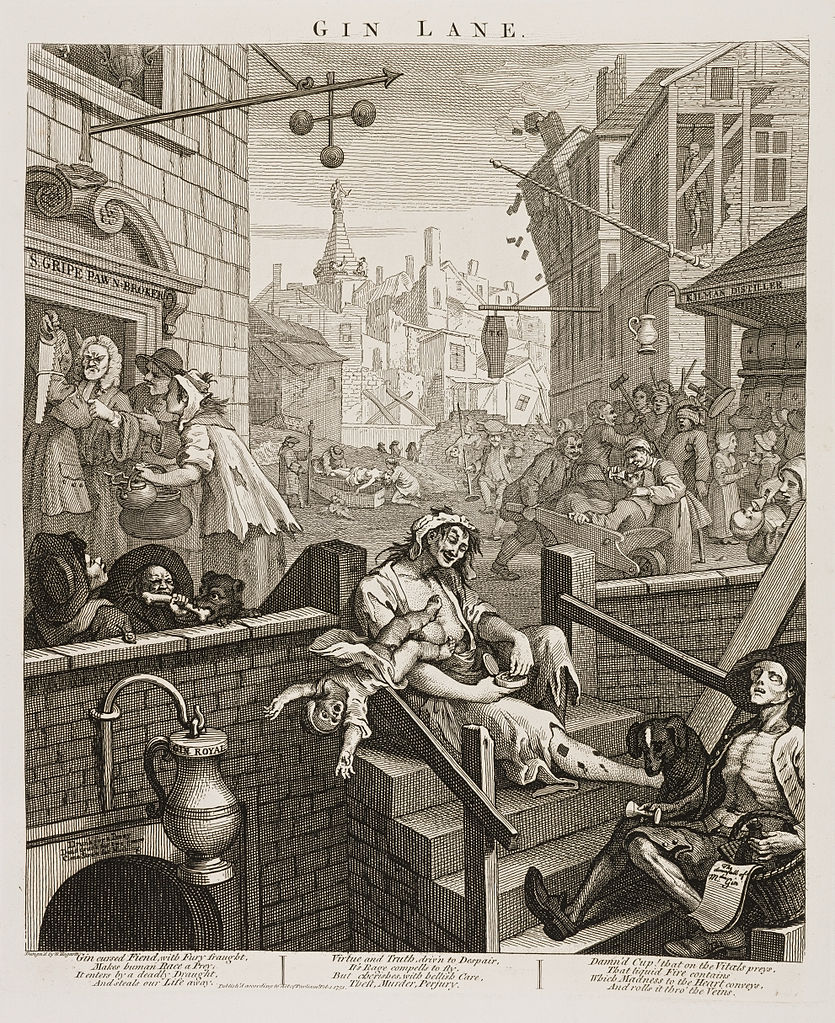
The plight of poverty-stricken Ontarians, forced to get drunk at their local 7-Eleven dive bar.
Gin Lane, from Beer Street and Gin Lane via Wikimedia Commons.
Ontario politics in recent weeks has played out as something like a real-time satire of itself, with the Latent Methodist Brigade still insisting Premier Doug Ford’s plans for the demon liquor will lead us all to untold poverty and perdition. The news this week has only made them more upset: Japanese convenience store empire 7-Eleven will open licensed areas in 58 of its 59 stores in Ontario, in which you can enjoy an alcoholic drink with your hot dog, nachos or chicken nuggets. The company says it’ll add 60 jobs.
Fifty-eight is not a large number, you will agree, in a province with many thousands of licensed premises, any of which might get you drunk and send you back out to your car or boat (though of course they shouldn’t). Some of those thousands of licensed premises are even attached to gas stations, I can report. And many gas-station convenience stores in Ontario sell beer, wine and liquor as independently run “LCBO agency stores”.
For the record, 7-Eleven announced they were doing this way back in December 2022. Pro-forma neo-puritan controversy ensued, and quickly died down. Two 7-Elevens already operate as licensed restaurants in Ontario, apparently without incident, along with 19 in Alberta. (Unfortunately, bien-pensant Ontarians are trained from birth to believe Alberta’s liquor-retail reforms in the 1990s were a grotesque misadventure that everyone there regrets.)
Nevertheless, the same pro-forma neo-puritan freakout is playing out again.
“Let me get this straight. 7-Eleven locations where people fuel up their cars will now allow folks to drink on the premises? What could possibly go wrong?” sneered JP Hornick, president of the Ontario Public Service Employees’ Union (OPSEU), who was last seen dragging LCBO employees into a disastrous tantrum-cum-strike over expanding retail access.
“We need a government that will focus on real things including bringing down hospital wait times, fixing schools and tackling the housing crisis as their signature achievements, amongst many more,” Toronto Coun. Josh Matlow correctly averred on Twitter … and then, as is the fashion here, went full non-sequitur: “Doug Ford made sure we could drink coolers inside a 7-Eleven.” As if the government decided it could only pick one.
(And can I just say here, any Toronto city councillor complaining about another politician’s lack of “signature achievements” is on bloody thin ice.)
Every fully paid-up member of the Laurentian Elite [Spit!] believes with all their flinty hearts that Alberta is a barren wasteland of ruined lives thanks to the demon liquor being sold in corner stores. Initial issues from a generation ago are firmly ensconced as “the way it is” with liberalized booze access out there in the wild west.
July 26, 2024
QotD: Comparative advantage
To produce wine in Portugal, might require only the labour of 80 men for one year, and to produce the cloth in the same country, might require the labour of 90 men for the same time. It would therefore be advantageous for her to export wine in exchange for cloth. This exchange might even take place, notwithstanding that the commodity imported by Portugal could be produced there with less labour than in England. Though she could make the cloth with the labour of 90 men, she would import it from a country where it required the labour of 100 men to produce it, because it would be advantageous to her rather to employ her capital in the production of wine, for which she would obtain more cloth from England, than she could produce by diverting a portion of her capital from the cultivation of vines to the manufacture of cloth.
David Ricardo, On the Principles of Political Economy and Taxation (1817), quoted on the Library of Economics and Liberty site.
July 21, 2024
LCBO strike reportedly settled
A tentative deal was announced on Friday afternoon, then un-announced after the LCBO claimed the union had added financial demands to the return-to-work conditions after the contract itself had been agreed, and then on Saturday, re-announced. If the deal is ratified by the union, LCBO stores across Ontario should re-open on Tuesday.
It was the first LCBO strike in Ontario history, and it’s open to debate whether the union members will get all that much for their two-week unpaid break. The National Post‘s Chris Selley thinks not, calling it the “Stupidest. Strike. Ever.”
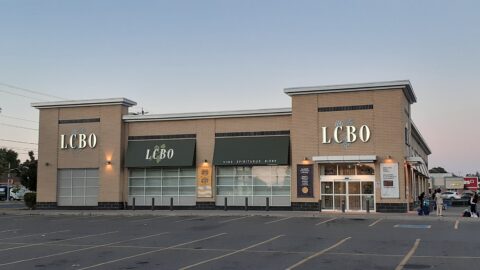
“LCBO at Parkway Mall” by Xander Wu is licensed under CC BY-SA 4.0 .
A week into the strike, a scant 15 per cent of Ontarians told Leger marketing that shuttered LCBO outlets had “affected (them) personally”. Only 29 per cent said they felt the government should legislate or arbitrate LCBO workers back into stores as soon as possible. Eleven per cent said they didn’t even know the strike was happening. And 32 per cent said they had explored “alternative locations” to buy booze, of which there are nowadays myriad.
Many more explored those opportunities in week two of the strike, I suspect, as fridges and wine racks were depleted. That’s potentially bad news for the LCBO’s future retail market share. But you didn’t even need an alternative to the LCBO: With a few days’ planning you could get all your regular brands delivered for free. Delivery and wholesale options were running as normal. Restaurants and supermarkets supplied by the LCBO were still supplied, and though there were reports of empty shelves at some supermarkets, that wasn’t truer than normal at the one I visit.
[…]
So this all looks like a terrible miscalculation by union leadership on behalf of its members — both a fundamental misreading of who had leverage, and a bizarre tactical choice to make the strike first and foremost about expanding the sale of ready-to-drink cocktails and seltzers (RTDs) to supermarkets and convenience stores.
Not wages; not benefits; not the number of full-time positions — things people can at least relate to — but where you can and cannot buy a White Claw or a Caesar in a can. Did they really think people would care?
Near as I can tell, it was an attempt to make this about the LCBO’s retail future: RTDs are a big and growing slice of the alcohol market in Ontario, only accessible (before the strike) at the LCBO. OPSEU wanted us to believe that by allowing supermarkets to sell them, Ontario would make no profit on them. And that’s their baked-in advantage: An incredible number of Ontarians, including far too many journalists, cannot wrap their minds around the notion of the government taking its cut at wholesale rather than retail.
Still, this gambit clearly fell flat.
Update: Fixed broken link to NP.
July 14, 2024
When the Ontario Progressive Conservatives backed away from LCBO privatization
In the National Post, Terence Corcoran posts an excerpt from last year’s The Harris Legacy: Reflections on a Transformational Premier edited by Alister Campbell:

“LCBO at Parkway Mall” by Xander Wu is licensed under CC BY-SA 4.0 .
Almost 30 years ago, in 1995, the Ontario Progressive Conservative government led by Mike Harris promised to privatize the Liquor Control Board of Ontario (LCBO). “We will sell off some assets, such as the LCBO,” said the party’s famed election document, the Common Sense Revolution (CSR). The LCBO could have been a true privatization — a full-fledged divestiture of a government monopoly into a new open and competitive market, but it never happened.
The failure to privatize the LCBO, lamentable from a consumer and economic perspective, remains a significant lost opportunity to demonstrate the benefits of privatization. If Harris had successfully de-monopolized the alcohol market, the whole concept of privatization would have been given a major boost. Instead, the government backed away from privatization of the alcohol market, preferring instead to allow the corporation to substitute modern marketing and retail razzle-dazzle to give the false impression it was offering the public the best of all worlds.
The LCBO failure is also a demonstration of the degree to which the Common Sense Revolution’s starting principles fell short in grasping the essential benefits of private versus public ownership and control. Neo-liberalism isn’t exactly a fine science. The Wikipedia entry on “Neo-liberalism” is a 30-page effort (including 400 footnote links to hundreds of warring academic papers), reflecting an economic and ideological scramble that dates back more than a century. But when the Harris government came to power, major elements of the free-market model were often overshadowed by fiscal policy objectives. With the LCBO, the Harris government veered off the neo-liberal course in pursuit of standard political objectives.
In 1995, the LCBO was a government owned and operated province-wide corporation that controlled liquor and wine wholesale and retail markets. Another private monopoly player, the Beer Store chain, while owned and operated by the brewing industry, was also essentially a government-sanctioned beer monopoly. The CSR neo-liberal objective should have been to privatize the alcohol market by selling the LCBO, deregulating the Beer Store monopoly and allowing beer sales through supermarkets and even corner stores. More importantly, dismantling the LCBO would allow other corporations to enter the alcohol retail business and provide consumers much more choice, which has been the Alberta experience. Notably, Alberta achieved a successful and deregulated approach without sacrificing provincial revenues.
The neo-liberal objective of privatization is to benefit consumers and enhance economic productivity through competition. Instead, the Harris government fell into the fiscal policy trap that routinely captures politicians, bureaucrats and corporate insiders. Instead of aiming to benefit consumers, the objective soon became how to maximize the fiscal return to government. Never mind the consumer and the market. The objective became preserving — and enhancing — government revenues.
At the time, anti-privatization advocates frantically pointed at the Alberta experience of privatization of their provincial liquor monopoly, which (briefly) generated a lot of retail horror stories that Ontario newspapers gleefully republished (and, likely, emphasized out of proportion to the actual Alberta market). You can still hear Ontarians casting aspersions on the Alberta market as if nothing at all had changed after the initial rough patch. From what I’ve heard from Albertans, they have far wider choices of alcoholic beverages in stores much more conveniently sited with better open hours than anyone in Ontario enjoys. The Alberta government still gets at least as much in tax revenues from alcohol sales without needing to be in the distribution or retail business. It doesn’t seem to be the utter disaster that Ontario media portrays it to be … rather the contrary.
July 9, 2024
What it was like to visit a Medieval Tavern
Tasting History with Max Miller
Published 27 Mar 2024Medieval stew with meat, spices, and verjuice, and thickened with egg yolks
City/Region: England
Time Period: 15th CenturySome medieval taverns may have had what is called a perpetual stew bubbling away. The idea is basically what it sounds like: as stew was taken out, more ingredients would be added in so that the stew kept on stewing. In southern France, there was a perpetual stew that was served from the 15th century (around when this recipe was written) all the way up until WWII, when they couldn’t get the right ingredients.
I have opted to not make this stew perpetual, but it is delicious. The medieval flavor of super tender meat with spices and saffron is so interesting, especially with the added acidity and sweetness from the verjuice.
A note on thickening with egg yolks: if you need to reheat your stew after adding the egg yolks, like I did, they may scramble a bit. The stew is still delicious, it’s just the texture that changes a little and it won’t be quite as thick.
Vele, Kede, or Henne in bokenade
Take Vele, Kyde, or Henne, an boyle hem in fayre Water, or ellys in freysshe brothe, and smyte hem in pecys, and pyke hem clene; an than draw the same brothe thorwe a straynoure, an caste there-to Percely, Swag, Ysope, Maces, Clowys, an let boyle tyl the flesshe be y-now; than sette it from the fyre, and alye it up with raw yolkys of eyroun, and caste ther-to pouder Gyngere, Veriows, Safroun, and Salt, and thanne serve it forth for a gode mete.
— Harleian Manuscript 279, 15th Century
July 7, 2024
Ontario’s LCBO strike may be both justified and counterproductive
Ontario’s main importer and distributor of wine, beer, and spirits is now facing its very first actual strike, as the negotiators couldn’t come to an agreement by the strike deadline on Friday morning. On the face of the dispute, the union certainly has some solid grounds for the strike, as pay hasn’t been keeping pace with (official) inflation and far too many of the LCBO’s workforce are on work schedules that keep them from earning full-time wages. On the other hand, over the last decade or so, both Liberal and Progressive Conservative provincial governments have been making piecemeal changes to the market so that the LCBO is far from the only place Ontario drinkers can purchase their preferred booze. Just off the top of my head, here are some of the alternative options now available to Ontario consumers:

“LCBO at Parkway Mall” by Xander Wu is licensed under CC BY-SA 4.0 .
- The Beer Store, Ontario’s other (foreign-owned) booze oligopoly for beer and cider is still operating normally at all their retail locations and agency stores. They also have online ordering for delivery available to ordinary consumers.
- The LCBO is still offering online sales — not same-day, but free delivery.
- Ontario’s vast array of craft brewers are still able to sell individual cans or bottles of beer from their bottle shops or storefront locations (pre-packaged 6-, 12-, 24-container or other types are still limited to the Beer Store oligopoly, of course).
- Ontario’s wineries are similarly still operating normally for retail sales at the winery or (for a few older wineries who still have grandfathered privileges from earlier licensing regimes) stand-alone retail stores.
- Ontario’s much smaller — but growing — number of distilleries are also operating normally and are able to sell their locally produced whiskey, gin, vodka, etc. from their tasting rooms/bottle shops.
- Many, many grocery stores in the province now sell wine, beer, or both, and are all operating normally. They may be slower to replenish the shelves as the LCBO’s limited number of non-union staff will be handling re-supply.
In addition, if the strike continues for more than two weeks, the LCBO will open a select number of their stores for limited hours across the province (again, limited by the number of non-unionized staff available to operate the stores). With all of this (and I’m sure I’m missing some options in my list), consumers may begin to draw the conclusion that the LCBO isn’t as essential as it once was:
On Thursday evening, Colleen MacLeod, chair of the team bargaining on behalf of government liquor-store employees, declared the summer of 2024 utterly ruined.
“Tonight, (Premier Doug) Ford’s dry summer begins,” said MacLeod, of the Ontario Public Service Employees Union (OPSEU), hours before the first ever strike in the Liquor Control Board of Ontario’s (LCBO) history became official.
Desperate? Delusional? That’s up for debate. OPSEU’s press release announcing the strike suggests “delusional.” At one point it claims the LCBO is “Ontario’s best-kept secret.”
What could that possibly mean?
The release then quotes OPSEU president J.P. Hornick as follows: “We told Ford not to ruin everybody’s summer, but now he’s closed the Science Centre and forced a dry summer for Ontarians by refusing to offer a deal that would be good for LCBO workers and Ontario.”
The Ontario Science Centre is a tired old children’s destination in North Toronto that has been neglected in every way by consecutive provincial governments. I’m quite sure few people in Ottawa, Windsor or Thunder Bay have ever even heard of it. Mashing it together with the LCBO, just because OPSEU represents employees at both, suggests the union really doesn’t understand the fight it’s getting into.
If the Ford government is willing to dig in its heels and fight — which isn’t something it’s particularly known for — this could be a great win for the Ontario consumer.
It’s not 1990. The LCBO shutting the doors to its retail stores is really only a minor pain in the rear end, thanks to years of piecemeal, needlessly complex and and too-slow but nevertheless significant liberalization that really kicked into gear under former Liberal premier Kathleen Wynne. (Ford is often mocked for being obsessed with alcohol, but Wynne was nearly beyond parody. If her government woke up in a crisis Monday morning, it was safe to say she’d find herself announcing more beer and wine in supermarkets by Thursday afternoon.)
Anecdotally, as I was in on Thursday picking up a small selection of wine and beer, I overheard a conversation with one of the staffers and another customer where the staffer didn’t believe there’d actually be a strike and that the only result of the brinksmanship at the bargaining table would be that they would have to do more re-stocking next week after the (understandably) higher sales during the past week.
June 27, 2024
The Toronto Star wants Ontario to adopt Scottish booze regulation (but ignore the failure)
The Toronto Star always loves a good moral crusade, and if it also happens to fly in the face of whatever Premier Ford wants to do, then so much the better:
The Toronto Star is looking to Scotland to teach it how to reduce alcohol-related deaths. In an article titled “How Scotland started to kick its alcohol problem — and what Ontario could learn from it“, it pushes back on plans to liberalise Ontario’s state monopoly on alcohol retail, saying:
Ontario officials say they are fulfilling a 2018 election promise to increase “choice and convenience for shoppers and support Ontario retailers, domestic producers and workers in the alcohol industry”.
But Scotland has cut alcohol-related hospital admissions by 40 per cent and deaths by almost half. While in Ontario, alcohol-related admissions have risen by a third and deaths by almost half, according to the Canadian Centre on Substance Use and Addiction.
How did Scotland supposedly achieve this public health miracle?
The key part of Scotland’s landmark policy was aimed at reducing drinking by introducing minimum unit prices to make drinking more expensive.,/p>
Ontario already has minimum pricing and Scotland doesn’t have a state alcohol monopoly, so it is not obvious what lessons Ontarians are supposed to be learning, but put that to one side for a moment and consider the main claim.
Anyone who has been following events in Scotland knows that alcohol-specific deaths have risen since minimum pricing was introduced in 2018 and have generally risen since 2012 following a significant downturn in the years prior.
It is that drop between 2006 and 2012 that the Toronto Star must be referring to when it claims that deaths fell by “almost half” (actually a third). But the Scottish government didn’t pass any anti-alcohol legislation in those six years and it certainly didn’t have minimum pricing. The newspaper mentions that the drink-drive limit was cut, but that didn’t happen until 2014 and the evidence is clear that it had no effect on road accidents.
Since the Toronto Star doesn’t mention when the decline in alcohol-specific deaths took place, it is leading its readers to believe that it coincided with the introduction of minimum pricing and the lowering of the drink-drive limit. I call that lying.
It is strangely fitting that Canadians are being lied to about the “success” of Scotland’s alcohol strategy since the Scottish public were conned into accepting minimum pricing, in part, on the basis of lies told about the “success” of minimum pricing in Canada. The neo-temperance academic Tim Stockwell, who is quoted in the Star article, published a series of studies in the 2010s making some absurd claims about minimum pricing that were parroted by campaigners in the UK.
June 26, 2024
QotD: Wine criticism
A better way to grasp the essence of something is to look at the bigger picture. Over years of tasting, I’ve been drawn to a direct approach, which consists of jumping into the middle of things. I’ve found that if you start on the outside you often cannot get to the heart, and this is where you want to be. Some of the best descriptions of wine have come from people who could not analyze a wine to save their lives. They simply give an honest response to an experience just as someone would give to a Rolling Stones concert. Or, as Matisse said, they “observed … and felt the innermost nature of the experience.” Many people have difficulty doing this with wine because they believe there is a proper wine language and a correct response to each wine. They fear giving the wrong response.
Billy Munnelly, Billy’s Best Wines for 2005.

